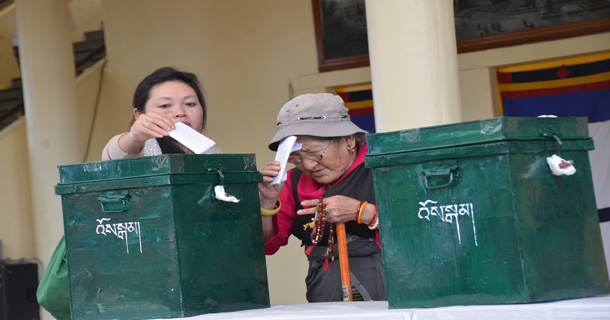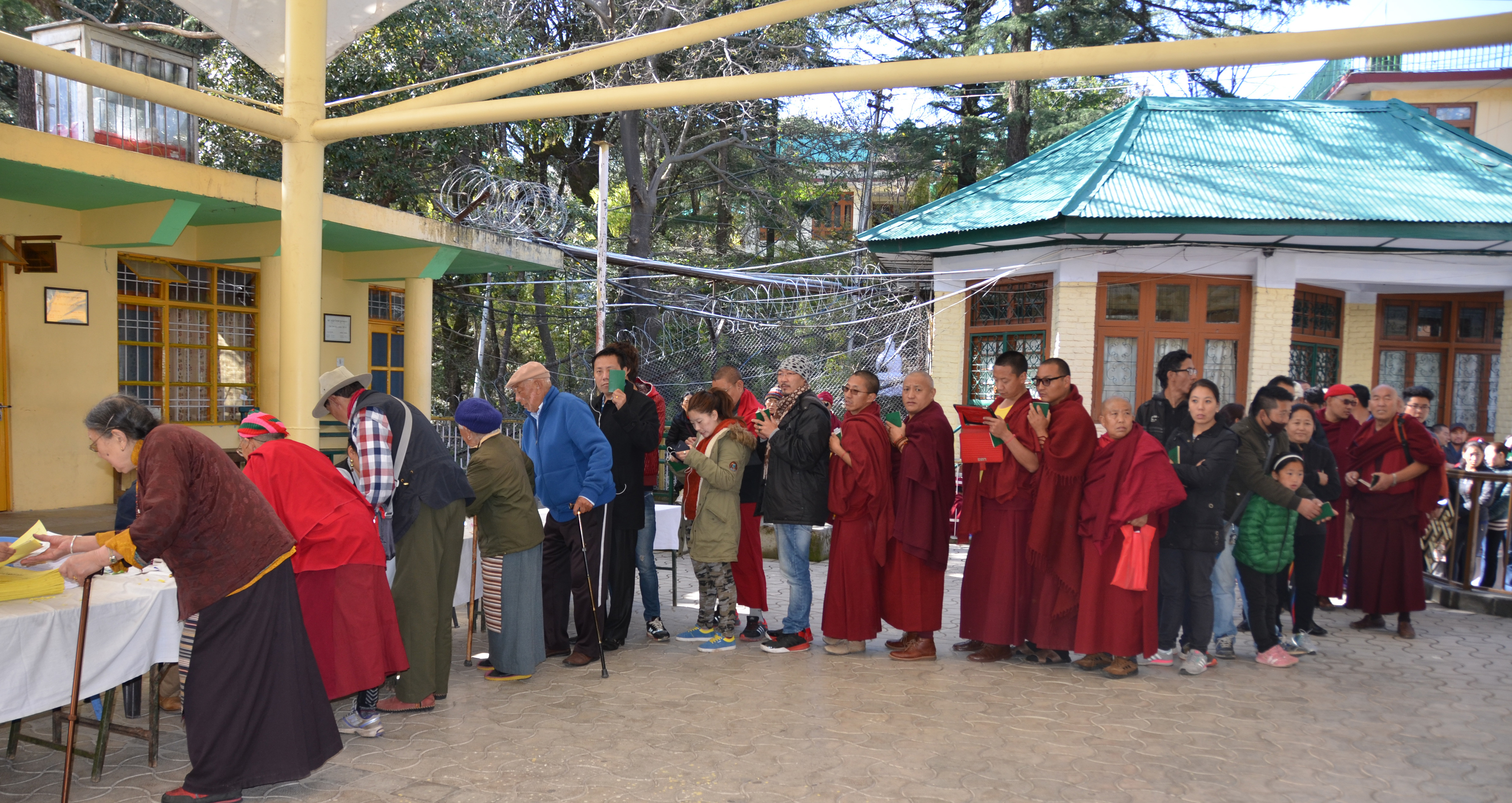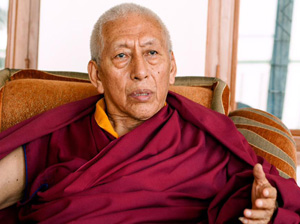Exile Tibetans in over 30 different countries cast their vote to elect their political leader (Sikyong) and 45 members of the 16th Tibetan Parliament-in-exile on March 20, 2016 in their respective regions.With over 90,000 voters registered to vote, this election will decide who will lead the exile Tibetan government for the next five years.
The final Election Day arrived with much excitement and enthusiasm from both public and the candidates campaigning and debating relentlessly till the end.
Dharamshala, the capital of the Tibetan exile community saw ten polling stations at different locations across the town. The polling station in the courtyard of Tsugla-khang, the main temple in Dharamshala, was the most crowded with hundreds of people queuing to cast their vote.
Members of the International Network of Parliamentarians on Tibet came to Dharmshala to observe the general election. The panel was made up of lawmakers from the United Kingdom, Canada, Australia and European nations. The panel spoke highly of the Tibetan election process, saying it was successfully conducted despite the voters being scattered all over the world. In a statement issued on March 21, they praised the enthusiasm of the voters,“We are pleased to see how Tibetans all over the free world have once again strongly embraced democracy as the best way to achieve the aspirations of a better future for the Tibetan people, which unfortunately continue to be denied to six million Tibetans in Tibet.” They announced that they will publish their report of the election assessment with recommendations after the election process is completed on April 27.
The final result of the election is scheduled to bereleased on April 27. However,regional vote counts are available on news sites and social media platforms. According to Phayul’s unofficial report on results from different polling stations, the incumbent Sikyong Lobsang Sangay has a substantial lead over Speaker of the Tibetan Parliament Penpa Tsering.
Meanwhile, it is also reported that the first elected head of the exiled government, Samdhong Rinpoche, aged 77, boycotted the election saying that he feels the entire process of the Tibetan democratic system is heading the wrong way.
“I didn’t cast my vote as the exiled government was based on the principles of Swaraj of (Mahatama) Gandhi Ji. It didn’t involve competition or opposition. But, nowadays, representatives are involved in opposing each other through their individual campaigns. Therefore, I think, the exiled government is not heading in the right direction,” Rinponche told the Times of India.
He said he was hurt by the practices adopted by exile leaders to compete for the post.
“The next generations of Tibetans, however, must know that the exiled set-up, which was founded in April 1959, was based on the principles of co-operation and not of competition. The practices being adopted by our contenders now are the same as regular political parties. These are not going to benefit in anyway”, he said.
Rinpoche was the first democratically elected head of the Tibetan cabinet, the post which was then known as KalonTripa, now Sikyong (political leader).
This 2016 election is the second democratic election for the political leader of exile Tibetan government. In 2011, his holiness the Dalai Lama completely devolved from political authority and the incumbent Sikyong Lobsang Sangay became the first political leader of exiled Tibetan government, based in Dharamshala, India.
What the voters were saying on Sunday:
“A vote is like a rifle: its usefulness depends upon the character of the user.” – Jigme Thinley, Upper TCV
“Whoever wins today I hope they keep their promises – I am just happy that it’s over. The past few months have been crazy. This election was all everyone spoke about everywhere we went.” – Dorji Kyi, Bhagsu Road
“May the winners from this election fulfill the aspirations of the Tibetan people, especially of the Tibetans inside Tibet. I am proud to have voted today through our unique system of Tibetan democracy which [is] sending a strong message to Communist China that I believe in the only legitimate Tibetan Government in Exile.” -Nyima Lhamo, Mcleod Ganj
“Every individual gets one vote. Thats universal. Sadly in the Tibetan community, some people get to vote twice in the name of their province and also in the name of their religious sect. To make ours a better democratic society I hope there will be a change in this regard.” – Kalsang Damdul, Gamru village
“My feelings are hopeful for the coming elected Sikyong to take concrete steps for the cause of Tibetans both in Tibet and in exile. I am very much hoping Tibetans in exile have voted for the best leadership who can reopen Tibet and China negotiations and will arrange dialogue between His Holiness the Dalai Lama and the Chinese Premiere.” – Tenzin Jigme, McLeod Ganj
“I have exercised my right to vote for the second time; it was great to see so many youngsters in the queue. The social media aspect has been great, it feels like everyone’s discussing it on WecChat and Facebook. Even this morning people were sharing status about voting and updating photos on their way to the polling station. It wasn’t like this five years ago. I voted for people from my province base on their integrity, commitment, experience and intellectual calibre. After all, I feel proud to have accomplished my democratic duty soundly.” – Tenzin Dalha, Gangkyi
For more Election news click here







 Print
Print Email
Email